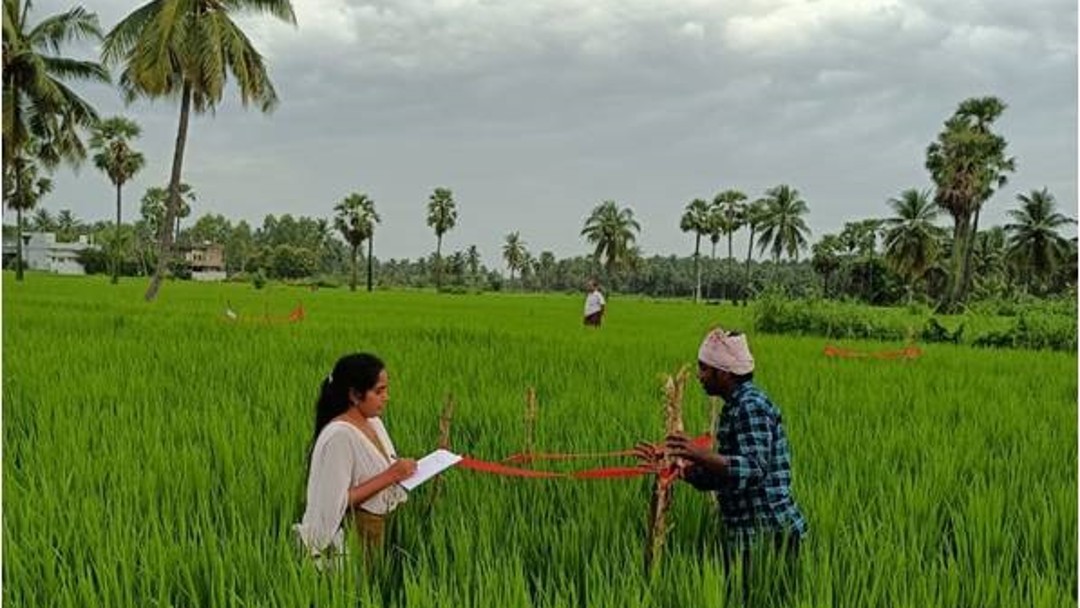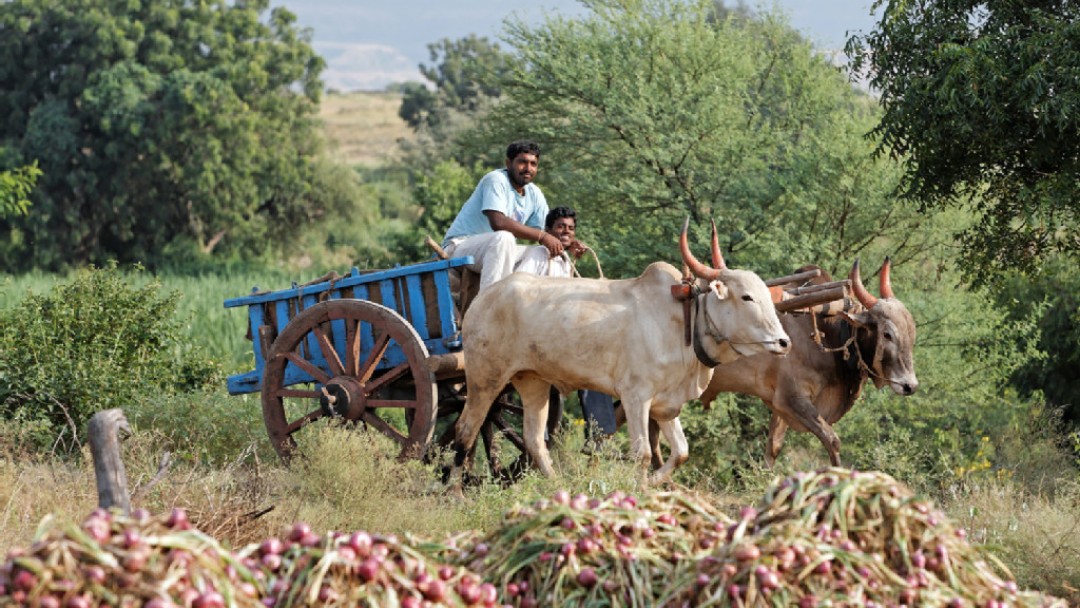News from 2022-07-13 / KfW Development Bank
Research academy for agroecology opens in India
KfW promotes scientific research and teaching of agroecological agriculture
Natural or near-natural agriculture can be an innovative way to make crops more resilient to climate change. However, the cultivation methods are still insufficiently researched. On behalf of the German Federal Government, KfW is supporting the establishment of the Indo German Global Academy of Agroecology Research and Learning (IGGAARL) in Andhra Pradesh, India, with EUR 20 million. The centre was officially opened at the beginning of July.

Climate change is leading to less rainfall and more frequent droughts in India. There are also heavy rains and storms. This leads to soil degradation due to soil erosion as well as loss of mineral-rich topsoil. This is further aggravated by improper application of mineral fertilisers and synthetic pesticides. Soil life suffers, the humus layer is eroded. As a result, while the cost of cultivation increases, the harvests of the already poor smallholders are poorer. This affects the living conditions of up to 6 million smallholder families in Andhra Pradesh.
Conversion to organic farming methods can help to halt or reduce soil degradation by building up humus. But there is little scientific knowledge with this type of cultivation. In the past 60 years, more than 90% of research funds have gone to conventional agriculture. This is now set to change.
Findings on agroecology
On behalf of the German Federal Ministry for Economic Cooperation and Development (BMZ), KfW is supporting the establishment of a research and training centre in Andhra Pradesh that will work with local smallholders to develop methods to improve soils and thus harvests. The government of Andhra Pradesh is providing land as well as buildings and will increasingly finance the operating costs itself.
The farmers have formed self-help groups and are advised by the Farmers' Empowerment Organisations (Rythu Sadhikara Samstha). They will work side-by-side with the scientists to formulate and prioritise the research questions. The projects will be carried out on their farms so that the findings can be implemented immediately. In addition, classical scientific experiments will be carried out on trial fields, in greenhouses and in the laboratory. Socio-economic research will also be carried out in order to understand the needs of the target group and the acceptance of the methods more precisely and to gain important insights for optimised practice.

Improving living standards
The goal of the Academy for Agroecological Research and Teaching is to increase the harvests and thus incomes of the poorest farming families in particular and thus improve their standard of living. The research programme for natural farming is also intended to network agricultural schools, universities and other research institutions throughout India. Cooperation with European institutions is also planned. The aim is to achieve a broad reach that extends well beyond Andhra Pradesh. The research results can be applied not only in India, but also in other regions with similar climatic conditions.

Share page
To share the content of this page with your network, click on one of the icons below.
Note on data protection: When you share content, your personal data is transferred to the selected network.
Data protection
Alternatively, you can also copy the short link: https://www.kfw-entwicklungsbank.de/s/enzBWrMC.CvXA
Copy link Link copied